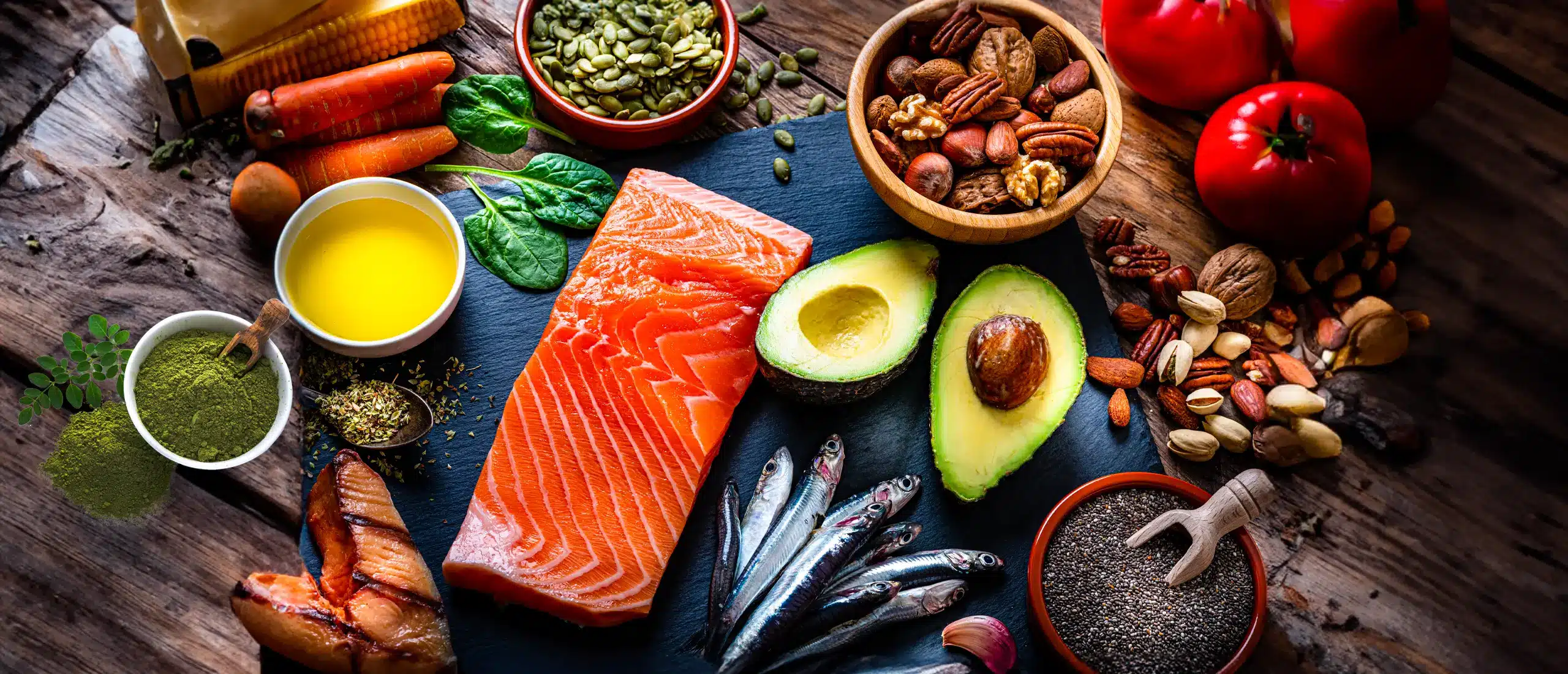This is the Healthiest Diet You Can Eat, According to a Cardiologist
- By Sydney Bueckert, NASM C.P.T., C.E.S., F.N.S., G.P.T.S.
- Reviewed By Imashi Fernando, MS, RD
- June 20, 2023
A panel of nutrition experts recently rated dozens of diets and cited the Mediterranean diet as the best diet of 2023 (1). For good reason: Studies show that those who follow a Mediterranean diet tend to live longer, have a lower risk of chronic disease, and enjoy a better healthspan (or the quality of life in those extra years) (2, 3). The Mediterranean diet might even reverse your brain’s biological age, according to a recent study published in Epidemiology and Global Health (4). But a less-discussed version of the Mediterranean diet called the green Mediterranean diet might be even healthier.
Think of the green Mediterranean diet as a mashup between the standard Mediterranean diet and a plant-based diet. It takes the usual healthy fare of the Mediterranean (whole grains, fruits, vegetables, beans, legumes, herbs, spices, nuts, olive oil, two or more servings of fish a week, poultry, and modest amounts of red meat and red wine) and tweaks it by scaling even further back on meat in favor of polyphenol-rich plant foods—changes cardiologist Steven Gundry, M.D. claims are the secret to a healthier heart, brain, and body.
What is the Green Mediterranean Diet?
“The green Mediterranean diet is an expression used by researchers in Italy to describe taking the standard Mediterranean diet to the next level,” says Gundry.
Like the Mediterranean diet, the green Mediterranean diet emphasizes “good” Mediterranean foods. “The next level involves avoiding red and processed meats entirely while putting polyphenol-rich plant foods in the spotlight,” he adds.
The green Mediterranean diet turns up the volume of polyphenols with the addition of three specific plant-based foods a day:
- 100 grams of a Mankai duckweed (a protein-rich aquatic plant) shake
- Three to four cups of green tea
- One ounce of walnuts
Why? Per Gundry, polyphenol-rich foods, like duckweed, green tea, and walnuts, reduce inflammation—which is linked to everything from cardiovascular disease to Alzheimer’s (5). The omission of red meat in the green Mediterranean diet is also intentional. “The Mediterranean diet is healthy, but it seems to be healthy despite the red meat, not because of it,” says Gundry. He notes red meat—like beef, pork, and lamb—contains neu5Gc, a molecule thought to exacerbate inflammation and chronic disease (6).
What Can You Eat on the Green Mediterranean Diet?
If you can stock up on Mankai duckweed, green tea, and walnuts, great. Mankai duckweed can be tricky to find in the US, but other types of duckweed are commonly available in greens powders.
If not, just focus on eating more polyphenols. “The more polyphenols the better,” Gundry says. And of course, the usual Mediterranean staples—like whole grains, fresh produce, olive oil, and fish—should be included, too.
Eat more
- Green tea
- Mankai duckweed (or plant-based protein powder)
- Leafy greens
- Fruits and veggies
- Nuts and seeds
- Olive oil
- Herbs and spices
- Fish (Gundry recommends smaller fish like sardines or herring)
- Poultry (like chicken or turkey)
Eat in moderation
- Eggs (no more than four eggs per week) (7)
- Dairy (no more than two servings a day)
Avoid
- Red meat
- Processed meat (like salami, hot dogs, and bacon)
- Junk food (like chips, cookies, and cereal)
- Desserts
- Soda and other sugar-sweetened beverages
According to Gundry, the source of your food matters, too. “You are what you eat, but you’re also what the thing you’re eating ate,” he says. Focus on wild fish over farmed, pasture-raised chicken over corn- or grain-fed, and colorful fruits and veggies which tend to be richer in polyphenols.
Benefits of the Green Mediterranean Diet
Supports heart health
A study published in Heart found that following the green Mediterranean diet improved LDL (bad) cholesterol, diastolic blood pressure, and inflammatory markers—important measures of heart health—more than the traditional Mediterranean diet (8).
Aids weight loss
The Heart study also found participants who followed the green Mediterranean diet lost more weight after six months (14 pounds) than those who followed the traditional Mediterranean diet (12 pounds), even though both diets restricted people to the same number of calories (8).
While the weight loss was similar between the two groups, the authors note it was about four times higher than the control group (3 pounds), which was counseled for healthy eating but could eat whatever they wanted.
Boosts gut health
Sure, the green Mediterranean diet is great for your heart, but the credit might go to your gut. A study published in Genome Medicine linked the cardiometabolic benefits of the diet to significant changes in the gut microbiome (9).
“One of the most surprising things about polyphenols is that they’re one of your body’s preferred sources of prebiotics. Your microbiome loves these things,” Gundry says. Think of prebiotics as fuel for the healthy bacteria in your gut. Studies show the healthier your gut, the better off your overall health (10).
Improves metabolic health
Non-alcoholic fatty liver disease (NAFLD) is closely linked to type 2 diabetes. According to a study published in Gut, eat the green Mediterranean diet and you might be able to dramatically reduce the level of fat in your liver, slashing your risk of NAFLD (11).
Slows brain aging
If you’re looking to skirt cognitive diseases like Alzheimer’s, the green Mediterranean diet has been shown to protect against age-related brain atrophy (12).
Lengthens healthspan
Since systemic inflammation is linked to nearly every chronic disease and condition under the sun, by toning it down you have a good chance of living longer. According to Gundry, by cutting down on inflammation, the green Mediterranean diet lengthens your healthspan, too—or the healthy, disease-free years of your life.
Can the Green Mediterranean Diet Help With Weight Loss?
“Yes and no,” says Gundry. As noted above, one study found the green Mediterranean diet is a good way to lose weight, and may even be superior to the standard Mediterranean diet (8). Still, like any diet, you’ll still gain weight if you eat too much, even if it’s in healthy polyphenols, Gundry adds.













